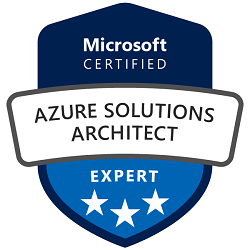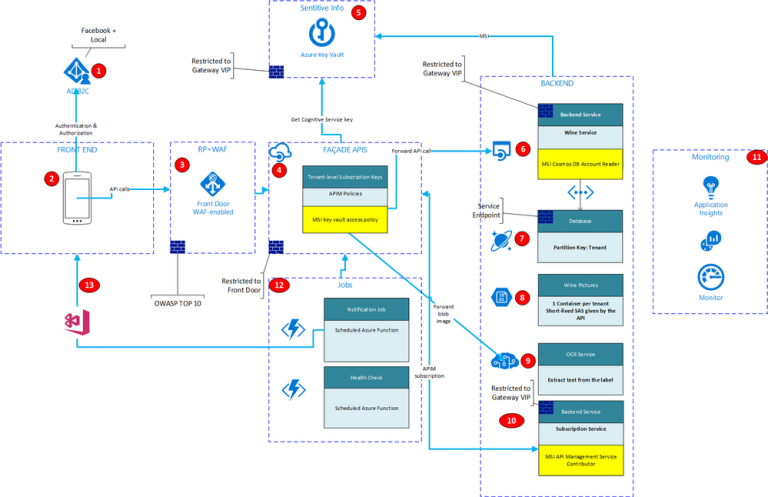Designing Azure Infrastructure Solutions AZ-305

The AZ-305 Designing Azure Infrastructure Solutions course is an advanced training program that focuses on designing Microsoft Azure infrastructure solutions. This course is intended for participants who already have some experience with Microsoft Azure cloud services and want to deepen their skills in designing and implementing scalable, reliable, and secure infrastructure solutions on Azure. During the course, participants will learn how to evaluate and design compute, storage, and networking solutions on Azure, considering factors such as performance, scalability, availability, and resiliency. They will also explore how to design identity and security solutions, ensuring that Azure resources are protected and compliant with regulations. Participants will gain skills in designing monitoring, backup, and recovery solutions, ensuring that applications and services on Azure are always available and functioning properly. They will also learn how to design migration and resource consolidation strategies to move on-premises applications and services to Azure. Upon completion of the course, participants will be able to design and implement infrastructure solutions on Azure that meet their organizations' needs for scalability, reliability, and security. This course helps prepare you for the Azure Solutions Architect Expert Certification exam.
Course Objectives
Below is a summary of the main objectives of the Designing Azure Infrastructure Solutions AZ-305 Course :
- Evaluate and design compute, storage, and networking solutions in Azure.
- Designing security and identity solutions in Azure.
- Implementation of monitoring, backup and recovery solutions.
- Designing resource migration and consolidation strategies.
- Manage scalability, reliability, and security of Azure solutions.
- Design and implement high availability and disaster recovery strategies.
- Optimize and manage cost-efficient Azure solutions.
- Integrate on-premises and cloud resources to create a hybrid solution.
Course Certification
This course helps you prepare to take the:
Exam AZ-305 Designing Microsoft Azure Infrastructure Solutions;
Course Outline
Design solutions for logging and monitoring
- Recommend a logging solution
- Recommend a solution for routing logs
- Recommend a monitoring solution
Design authentication and authorization solutions
- Recommend an authentication solution
- Recommend an identity management solution
- Recommend a solution for authorizing access to Azure resources
- Recommend a solution to manage secrets, certificates, and keys
Design governance
- Recommend a structure for management groups, subscriptions, and resource groups, and a strategy for resource tagging
- Recommend a solution for managing compliance
- Recommend a solution for identity governance
Design data storage solutions for relational data
- Recommend a solution for storing relational data
- Recommend a database service tier and compute tier
- Recommend a solution for database scalability
- Recommend a solution for data protection
Design data storage solutions for semi-structured and unstructured data
- Recommend a solution for storing semi-structured data
- Recommend a solution for storing unstructured data
- Recommend a data storage solution to balance features, performance, and costs
- Recommend a data solution for protection and durability
Design data integration
- Recommend a solution for data integration
- Recommend a solution for data analysis
Design solutions for backup and disaster recovery
- Recommend a recovery solution for Azure and hybrid workloads that meets recovery objectives
- Recommend a backup and recovery solution for compute
- Recommend a backup and recovery solution for databases
- Recommend a backup and recovery solution for unstructured data
Design for high availability
- Recommend a high availability solution for compute
- Recommend a high availability solution for relational data
- Recommend a high availability solution for semi-structured and unstructured data
Design compute solutions
- Specify components of a compute solution based on workload requirements
- Recommend a virtual machine-based solution
- Recommend a container-based solution
- Recommend a serverless-based solution
- Recommend a compute solution for batch processing
Design an application architecture
- Recommend a messaging architecture
- Recommend an event-driven architecture
- Recommend a solution for API integration
- Recommend a caching solution for applications
- Recommend an application configuration management solution
- Recommend an automated deployment solution for applications
Design migrations
- Evaluate a migration solution that leverages the Microsoft Cloud Adoption Framework for Azure
- Evaluate on-premises servers, data, and applications for migration
- Recommend a solution for migrating workloads to infrastructure as a service (IaaS) and platform as a service (PaaS)
- Recommend a solution for migrating databases
- Recommend a solution for migrating unstructured data
Design network solutions
- Recommend a connectivity solution that connects Azure resources to the internet
- Recommend a connectivity solution that connects Azure resources to on-premises networks
- Recommend a solution to optimize network performance
- Recommend a solution to optimize network security
- Recommend a load-balancing and routing solution
Course Mode
Instructor-Led Remote Live Classroom Training;
Trainers
Trainers are Authorized Microsoft Instructors and certified in other IT technologies, with years of practical experience in the sector and in training.
Lab Topology
For all types of delivery, the participant can access the equipment and actual systems in our laboratories or directly in international data centers remotely, 24/7. Each participant has access to implement various configurations, Thus immediately applying the theory learned. Below are some scenarios drawn from laboratory activities.

Course Details
Course Prerequisites
- Attendance at the Azure Administrator Course is recommended .
Course Duration
Intensive duration 4 days;
Course Frequency
Course Duration: 4 days (9.00 to 17.00) - Ask for other types of attendance.
Course Date
- Designing Azure Infrastructure Solutions Course (Intensive Formula) – On Request – 9:00 – 17:00
Steps to Enroll
Registration takes place by asking to be contacted from the following link, or by contacting the office at the international number +355 45 301 313 or by sending a request to the email info@hadartraining.com



